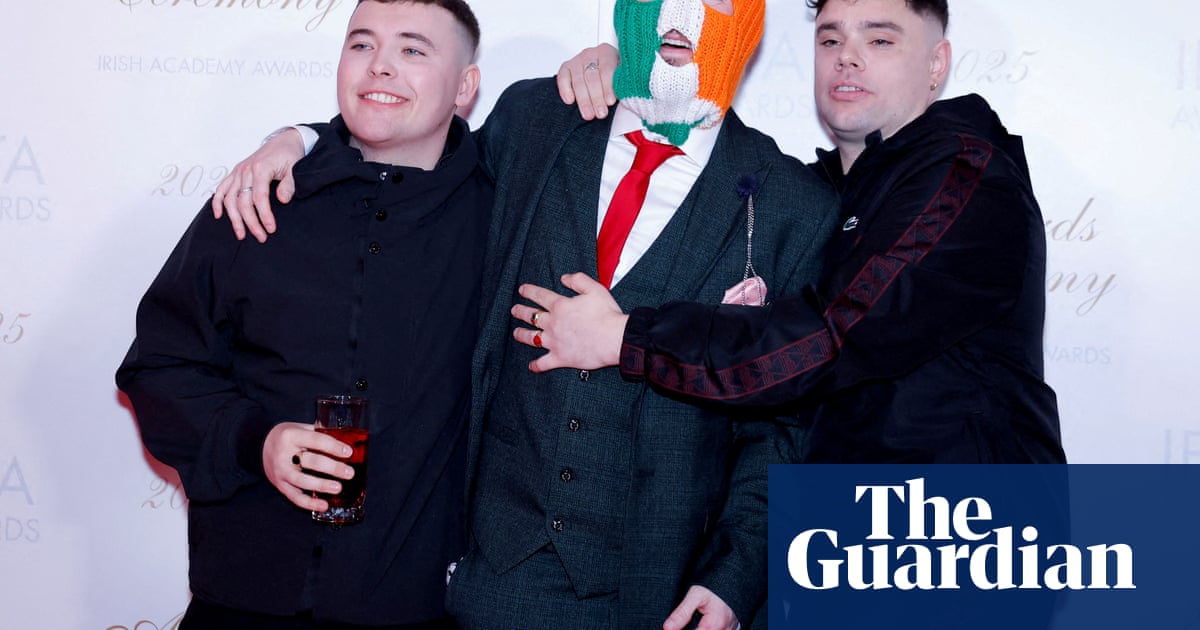Dozens of artists, including Pulp, Paul Weller andPrimal Scream, have defended Kneecap, saying politicians should have no place in deciding who can or cannot play musical festivals.
The Irish language rap trio have received heavy criticism from across the Commons benches overclaimsthey called for MPs to be killed. Ministers have put pressure on the organisers of the Glastonbury festival over the group’s inclusion, while a gig at the Eden Project has been cancelled.
The Conservative leader, Kemi Badenoch, has demanded the trio be banned from Glastonbury, with politicians from the governing and opposition parties underlining as evidence of the danger already faced by MPs the recent murders of their colleagues Jo Cox and David Amess.
Criticism of the band came after video emerged of a member had appeared to say at a 2023 gig: “The only good Tory is a dead Tory. Kill your local MP.” Footage from another date last year appeared to show one of the band shouting: “Up Hamas, up Hezbollah” – groups banned in the UK as terrorist organisations.
However, in a joint statement also signed by other artists including the former BBC Radio 1 DJ Annie Mac, and the bandsMassive Attackand the Pogues, the group said there had been a “clear, concerted attempt to censor and ultimately deplatform” Kneecap. “As artists, we feel the need to register our opposition to any political repression of artistic freedom.
“In a democracy, no political figures or political parties should have the right to dictate who does and does not play at music festivals or gigs that will be enjoyed by thousands of people.”
Massive Attack also put out their own statement, adding: “Language matters, of course. The hideous murders of elected politicians Jo Cox and David Amess means there’s no scope for flippancy or recklessness.”
It said politicians were “strategically concocting moral outrage over the stage utterings of a young punk band”, adding: “Kneecap are not the story. Gaza is the story. Genocide is the story. And the silence, acquiescence and support of those crimes against humanity by the elected British government is the real story.”
Kneecap have been outspoken on political issues, including British colonialism in Ireland and the Gaza war, throughout their history. The band have sought to defend themselves; apologising to the families of Sir David Amess, the Conservative MP murdered in 2021, and Jo Cox, the Labour MP killed in 2016.
They said they “never intended to cause you hurt”, and that they “reject any suggestion that we would seek to incite violence against any MP or individual”.
The group said: “Kneecap’s message has always been – and remains – one of love, inclusion, and hope. This is why our music resonates across generations, countries, classes and cultures and has brought hundreds of thousands of people to our gigs. No smear campaign will change that.”
They added they have “never supported” Hamas or Hezbollah.
Families of both MPs have suggested the band’s apology was less genuine than they had hoped. Katie Amess, the daughter of the MP for Southend West, said it would be “very dangerous” for Kneecap to perform at Glastonbury. Brendan Cox, the husband of Jo, called the statement “half an apology”.
